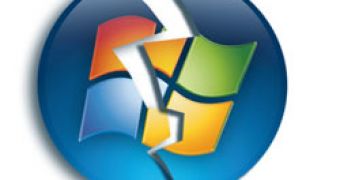The beginning of 2008 has not been kind to Windows Vista. Microsoft's latest operating system, applauded as the most secure version of Windows available on the market, needs to start licking its many wounds. The Redmond company has been performing a vulnerability counting game throughout 2007, comparing Vista with XP, as well as with direct competitors Linux and Mac OS X, in terms of the volume of security vulnerabilities affecting each platform. And as it looks that Microsoft transformed the vulnerabilities comparison in somewhat of a tradition over the course of the past year, the company is bound to a recount.
"As part of our regularly scheduled bulletin release, we're currently planning to release 12 Microsoft Security Bulletins- seven Critical and five Important. These updates will require a restart and will be detectable using the Microsoft Baseline Security Analyzer and the Enterprise Scan Tool. As we do each month, the Microsoft Windows Malicious Software Removal Tool will be updated. Finally, we are planning to release seven high-priority, non-security updates on Windows Update and Windows Server Update Services (WSUS) as well as two high-priority, non-security updates on Microsoft Update and Windows Server Update Services (WSUS)," stated Bill Sisk, Microsoft Security Response Center Communications Manager.
The dozen Microsoft security bulletins are planned for release on February 12, 2008. As such, it will be a busy month since there rarely is an one-on-one concordance between security bulletins and vulnerabilities, a single patch sometimes being designed to resolved multiple security holes. No less than eight updates will affect various versions of the Windows platform, with a total of four labeled with a maximum severity rating of Critical, and the remaining four just Important. Five security bulletins will impact Windows Vista, three of which Critical. But Microsoft is also cooking security updates for vulnerabilities in Internet Explorer 7, the Office System, Active Directory and even Visual Basic.

 14 DAY TRIAL //
14 DAY TRIAL //